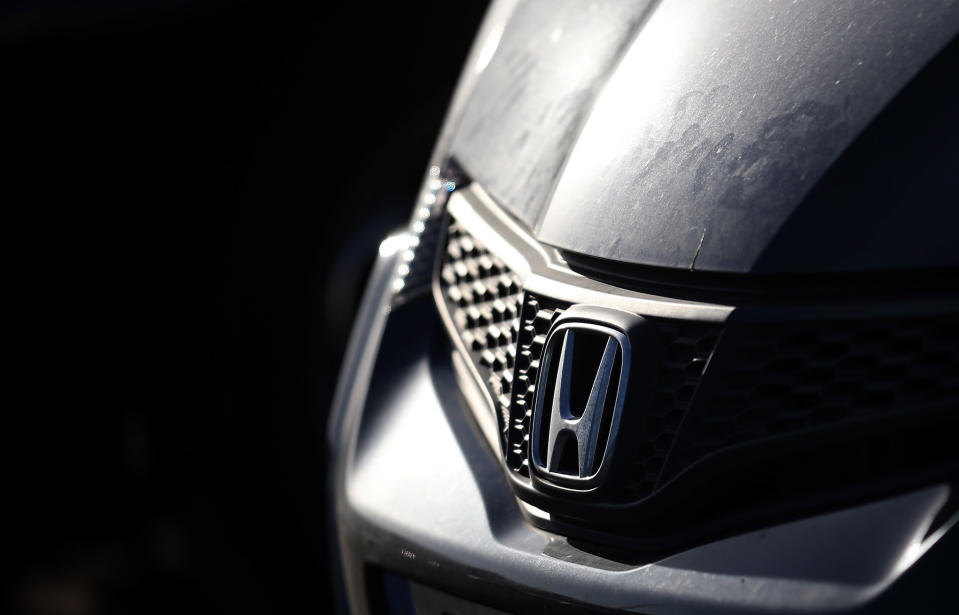Honda's plant closure puts 7,000 car industry jobs at risk
Honda is shutting down its UK factory in Swindon in 2021 and putting a total of 7,000 jobs at risk, the company confirmed on Tuesday.
Swindon, which serves as Honda’s sole European hub, directly employs 3,500 people. But another 3,500 jobs could disappear too.
“A further 3,500 people may be affected when we take into account other Honda businesses … that provide parts supply, logistics, and support to the Swindon factory,” the company said in a written statement. The jobs are within Honda subsidiaries and “affiliated companies,” it said.
The British car industry directly employs roughly 186,000 people in the UK, with a total of 856,000 jobs dependent on the sector, according to recent data from the Society of Motor Manufacturers and Traders (SMMT).
The Japanese car manufacturer said the factory closure was the result of a push towards expanding its electric car production. Brexit was not mentioned in the statement, though it remains top of mind as the Brexit deadline approaches next month.
“This proposal comes as Honda accelerates its commitment to electrified cars, in response to the unprecedented changes in the global automotive industry,” Honda (HMC) said in a written statement.
The company is expected to consolidate its production in Japan after the country recently signed a free trade deal with the European Union.
“The significant challenges of electrification will see Honda revise its global manufacturing operations, and focus activity in regions where it expects to have high production volumes,” the company said.
Industry experts say Brexit also played a huge role in the decision.
“I have listened to several Honda senior executives [at a recent industry event] saying that membership of the [EU] customs union was needed for them to operate in the UK … This should not come as a surprise to anyone who took the industry warnings seriously,” said Oxford professor Matthias Holweg, who specialises in manufacturing and operations management.

Holweg noted that the EU-Japan free trade deal also factored into the plan to move production back to Honda’s home base.
Honda’s Swindon factory built just over 160,000 Civic cars last year, or about one in every 10 British-made cars. The cars are shipped to 70 countries around the world.
READ MORE: The big electric car launches to expect in 2019
The UK government’s business secretary Greg Clark called the move a “bitter blow” for workers.
“The automotive industry is undergoing a rapid transition to new technology. The UK is one of the leaders in the development of these technologies and so it is deeply disappointing that this decision has been taken now,” the MP said in a written statement.
The factory closure announcement comes just weeks after Jaguar Land Rover announced plans to cut 4,500 jobs, or about 10% of its workforce. Ford (F) is also cutting thousands of jobs in Europe, with Unite the Union previously warning that the American company would cut about 1,150 jobs in the UK.
Another Japanese car company — Nissan (7201.T) — said this month that it wouldn’t build its X-Trail SUV in the UK as previously planned. Instead, production of the cars will move to Japan.
Nissan’s Europe chairman Gianluca de Ficchy said at the time that “continued uncertainty around the UK’s future relationship with the EU is not helping companies like ours to plan for the future.”
The new X-Trail would have created roughly 740 new jobs at Nissan’s British factory.
Honda also said last month that it would shut its British operations for six days in April to help counter any border disruption from Britain’s planned departure from the European Union.
READ MORE: What is a no-deal Brexit?
Industry executives and experts have warned for years that Brexit posed a potentially insurmountable challenge for the car industry as it threatened to stop the seamless flow of trade in cars and parts between the UK and EU.
More than half of all cars built in the UK are shipped to the European Union, with zero tariffs and virtually no border checks between both sides.
Brexit is scheduled for 29 March and the risk remains of a no-deal Brexit, where the UK and European Union are unable to finalise their divorce. This is expected to create huge slowdowns at the border, new tariffs, and a sharp negative reaction in financial and currency markets.
The car industry is also suffering from a sharp drop in demand for diesel vehicles in Europe, along with a shift in consumer tastes towards SUVs and away from small cars. Plus, US-China trade tensions, which led to a recent drop in Chinese vehicle demand, have been a big problem for many players. These issues, alongside Brexit, have also been blamed for recent upheaval in the industry.

 Yahoo News
Yahoo News 